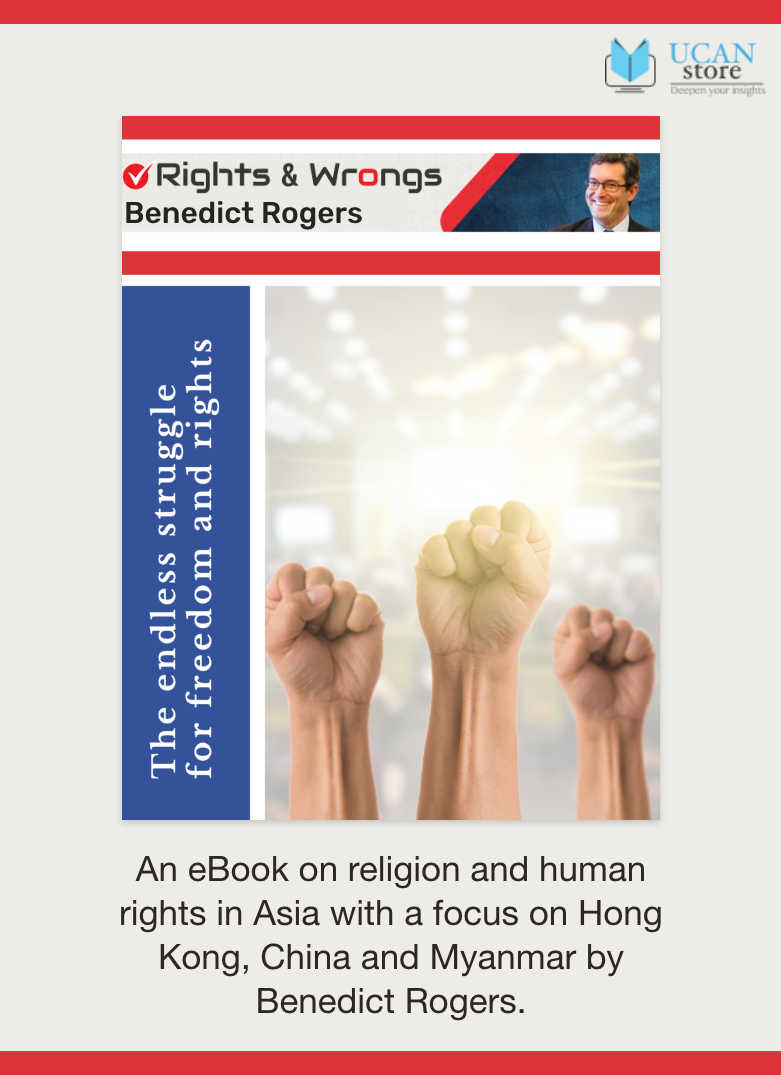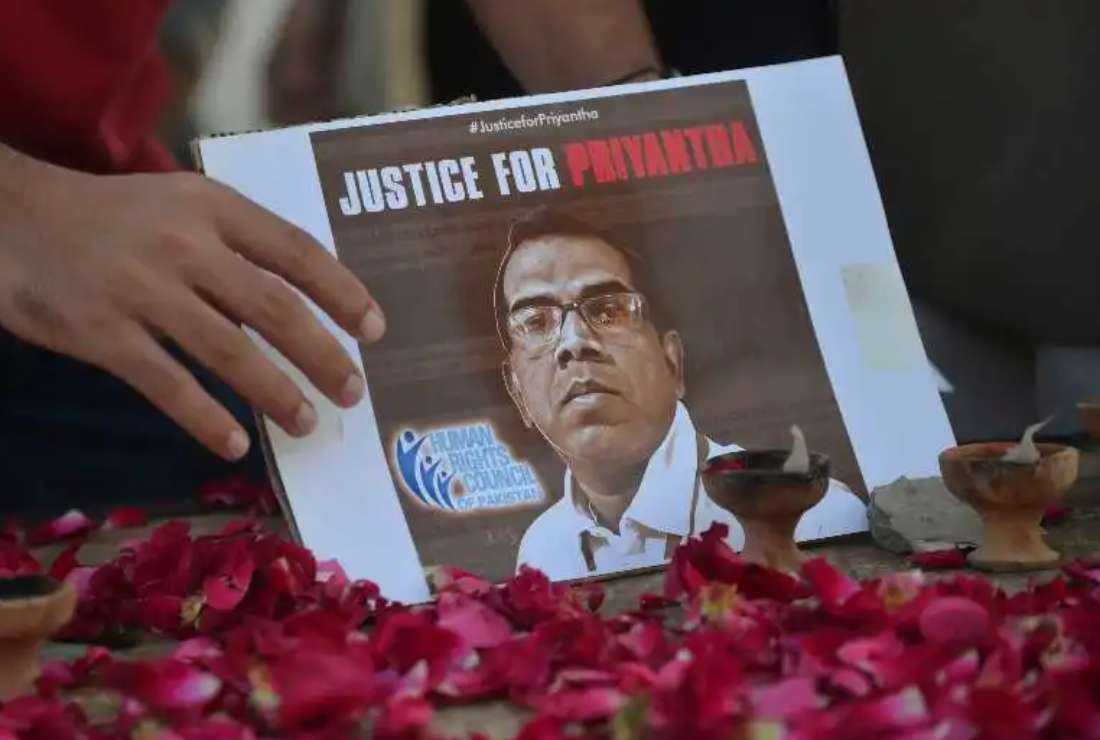
Government surrendered before mobs in favor of laws often misused for personal vendetta, says Catholic rights activist

A member of the Human Rights Council of Pakistan pays tribute to late Sri Lankan factory manager Priyantha Kumara Diyawadanage, who was beaten to death and set ablaze by a mob who accused him of blasphemy, in Karachi on Dec. 5, 2021. (Photo: AFP)
Catholic rights activists have criticized the Pakistan government’s decision to try those accused of committing blasphemy under its anti-terror law by succumbing to the demands of a radical Islamist party.
A 12-point agreement signed on June 17 by Interior Minister Rana Sanaullah with the Tehreek-e-Labbaik (TLP) proposes the application of the Anti-Terrorism Act (ATA) Section 7 on anyone convicted of defaming Prophet Mohammad in addition to other sections of the country's penal code.
The addition of terrorism charges will make the blasphemy suspects more vulnerable as they would face death or life imprisonment with a fine as punishment, said rights activists, calling the move “a step in the wrong direction.”
“It will only strengthen the controversial laws and support arbitrary detentions making the victims more vulnerable. It puts the prospect of a fair trial in question thus violating our international treaties,” Joseph Jansen, chairman of the rights group, Voice for Justice, told UCA News on July 19.
He foresaw “unjust imprisonment and lifelong suffering for the accused and their families.”
“Sadly, the unpopular government continues to surrender before mobs, in favor of laws often misused for personal vendettas,” he added.
The TLP had launched a 25-day-long march from the port city of Karachi on May 22 seeking stricter punishment and speedy trials for blasphemy accused.
Their other demands included abolishing all cases against TLP activists, the release of Aafia Siddiqui, a Pakistani neuroscientist jailed in 2008 for shooting at US officers in Afghanistan, and setting up a filtering system to remove blasphemous and immoral content from social media.
The National Commission for Justice and Peace, a human rights arm of the Pakistan Catholic Bishops’ Conference, refused to comment on the TLP deal with the government citing "unfavorable circumstances."
However, speaking with UCA News, Father Khalid Rashid Asi, director of the NCJP in the Faisalabad diocese, suggested including minority representatives in government policy-making bodies dealing with blasphemy laws.
“The inclusion of terrorism charges doesn’t suit our society. Anybody can become a victim unknowingly. Christians of Pakistan can never think of insulting holy personages, not because of decency, but due to fear after seeing burnt churches and attacked communities,” he said.
Sabir Michael, a Karachi-based Catholic academic and head of the Peace Welfare and Development Association, said the issue of imposing blasphemy laws is beyond government control.
“Every government is helpless in establishing its writ when the Islamists rally the public. The religious minorities of Pakistan can only survive by being more prudent,” he said.
Michael said the real terrorists “are those who spread fear in society” with false accusations based on religious sentiments.
Blasphemy is punishable by death under Pakistani law which criminalizes those who insult Islam or outrage religious feeling, but are poorly defined and require very little legal evidence.
As a result, the blasphemy laws are often used as a weapon of revenge against both Muslims and non-Muslims to settle personal scores or to resolve disputes over money, property, or business.
In a religiously sensitive country, a mere allegation is enough to provoke a mob to riot and lynch those accused of blasphemy.
The Lahore-based Center for Social Justice (CSJ) has noted that at least 1949 persons have been accused under the blasphemy laws between 1987 and 2021. A large number of these blasphemy cases are still awaiting justice.
This year, 57 cases of alleged blasphemy have been reported till May 15. Punjab province tops the list with 28 cases followed by Sindh (16), Khyber Pakhtunkhwa (8), and Kashmir (5).
In January, the National Assembly passed the Criminal Laws (Amendment) Bill, increasing punishment for insulting the Prophet’s companions, wives, and family members to 10 years along with a fine of 1 million rupees (US$3,480).
Help us keep UCA News independent
The Church in Asia needs objective and independent journalism to speak the truth about the Church and the state.
With a network of professionally qualified journalists and editors across Asia, UCA News is just about meeting that need. But professionalism does not come cheap. We depend on you, our readers, to help maintain our independence and seek that truth.
A small donation of US$2 a month would make a big difference in our quest to achieve our goal.

Share your comments